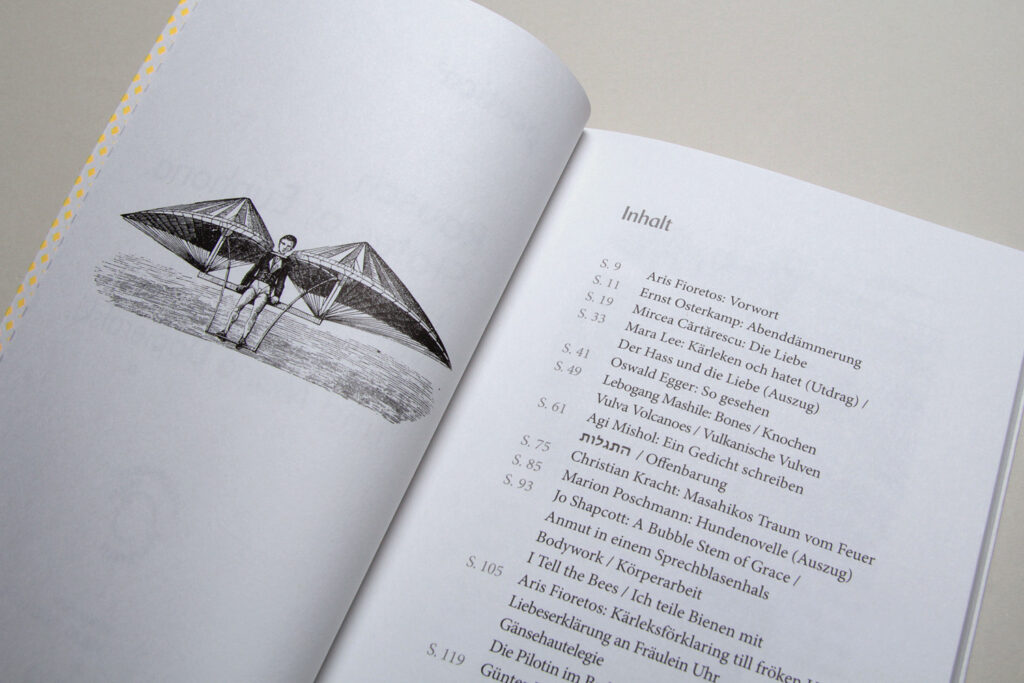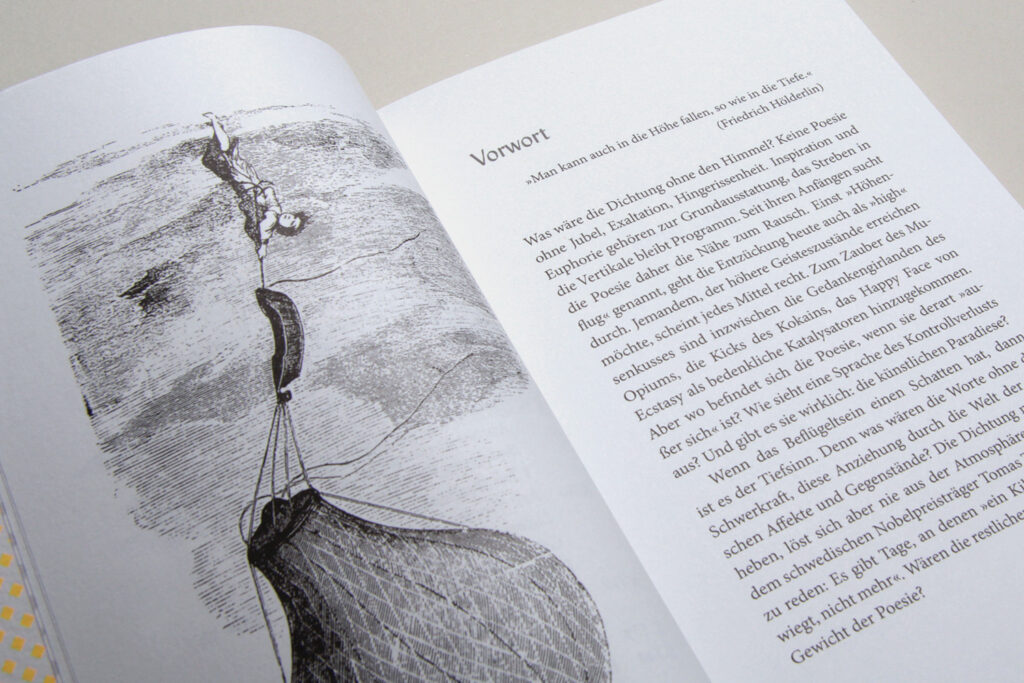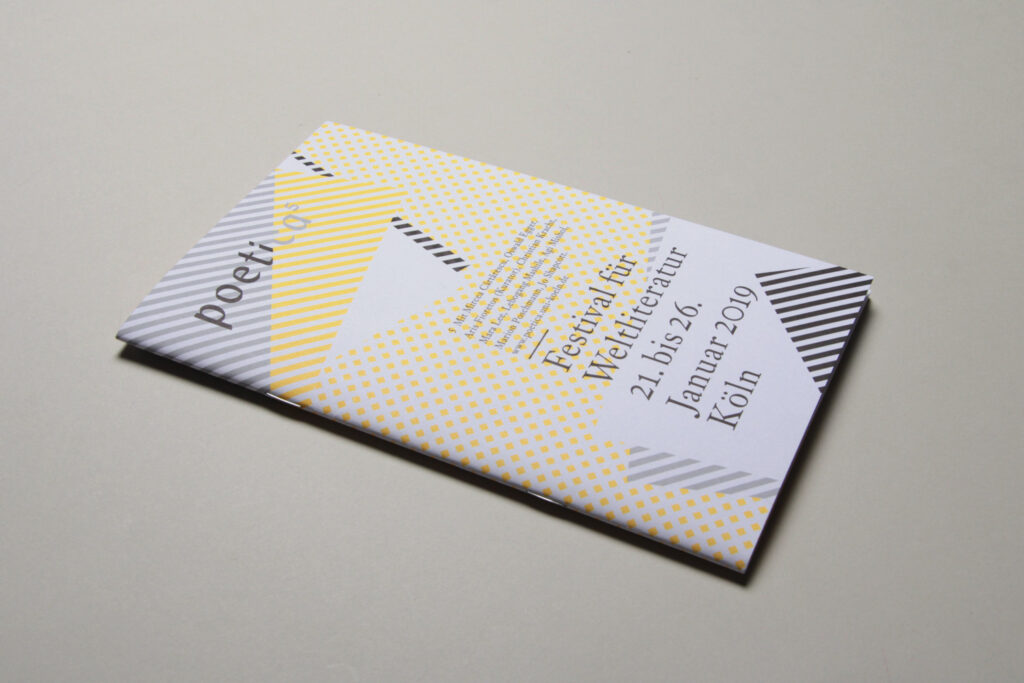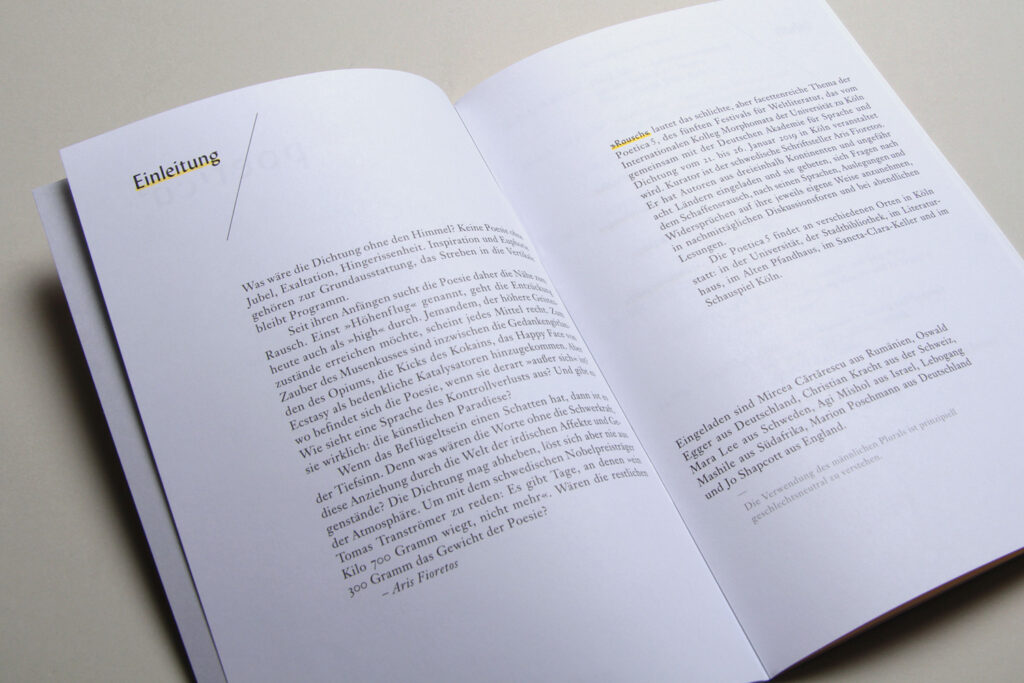







Poetica 5:
Rausch. States of Euphoria.
Information · Cover · Preface · Contents
Information
Poetry, prose, essays · Edited by Aris Fioretos · Tübingen: Konkursbuch Verlag, 2019, 152 pages · ISBN: 978-3-88769-698-6
Cover
What would poetry be without the heavens? There is rarely verse without praise, exaltation, rapture. Inspiration and euphoria are prerequisites, striving to soar remains a given. Since its inception, poetry has seeked the proximity of bliss. Once described as »flights of fancy,« today rapture is rather referred to as a »high.« Seekers of beatitude seem to stop at little to achieve it. The mental meanderings of opium, cocaine’s kicks and the happy face of ecstasy are contemporary catalysts supplementing the muse’s kiss of old. Still the question remains: Where is poetry when it is »far out«? Is there a language for being out of control? And do they truly exist, those artifical paradises?
If soaring rapture has a shadow, it is plummeting melancholy. What would words be without gravity, without the earthly pull of affects and objects? Verses may levitate, but they never leave the atmosphere. Or in the words of Swedish Nobel Prize Laureate Tomas Tranströmer: there are days when »a kilo weighs 700 grams, no more.« Might the remaining 300 grams be the weight proper to poetry?
Poetry, prose and essays by Günter Blamberger, Mircea Cartarescu, Oswald Egger, Aris Fioretos, Christian Kracht, Mara Lee, Lebogang Mashile, Agi Mishol, Ernst Osterkamp, Marion Poschmann, and Jo Shapcott.
Preface
»One can fall upward just as well as downward.«
Friedrich Hölderlin
There’s a seventh heaven and a sixth sense — now there is the Poetica5.
At this year’s festival for world literature, invited authors turn their minds to enhanced states of being. Since time immemorial, art and ecstasy, rapture and ritual have made common cause. People, among them many artists, ingest substances not for their nutritional value, but to induce euphoria. The Leipzig physician Louis Lewin, founder of the »science of poisons,« once compiled consciousness-altering substances under the title Phantastica (1924). Is literature such a drug? Does the right word dope the mind? Do well-wrought phrases expand consciousness?
At Poetica5, eight writers join author and festival curator Aris Fioretos to explore literary states of euphoria. Investigating different forms of inspiration and artificial paradises, they will discuss high-flying ecstasy but also the burden of gravity. At the opening event at the Cologne University aula, the guests are presented in talks with the curator and through readings from their works (in both native language and German translation.
Contents
Aris Fioretos: Vorwort
S. 9
Ernst Osterkamp: Abenddämmerung
S. 11
Mircea Cărtărescu: Die Liebe
S. 19
Mara Lee: Der Hass und die Liebe (Auszug)
S. 33
Oswald Egger: So gesehen
S. 41
Lebogang Mashile: Bones / Knochen
Vulva Volcanoes / Vulkanische Vulven
S. 49
Agi Mishol: Ein Gedicht schreiben
/ Offenbarung
S. 61
Christian Kracht: Masahikos Traum vom Feuer
S. 75
Marion Poschmann: Hundenovelle (Auszug)
S. 85
Jo Shapcott: A Bubble Stem of Grace / Anmut in
einem Sprechblasenhals. Bodywork / Körperarbeit
I Tell the Bees / Ich teile Bienen mit
S. 93
Aris Fioretos: Kärleksförklaring till fröken Ur /
Liebeserklärung an Fräulein Uhr
Gänsehautelegie – Die Pilotin im Bad
S. 105
Günter Blamberger: Tonisches und Toxisches. Über Rausch und Kunst
S. 119
Marta Dopieralski: Noch einen Kurzen
S. 139
Beiträgerinnen und Beiträger
S. 144